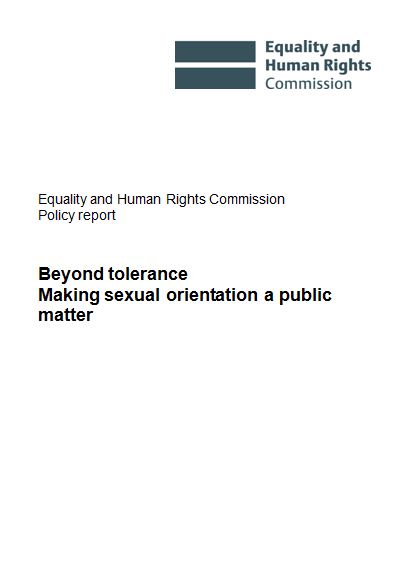Our groundbreaking new research shows that in 21st century Britain, despite legal advances, homophobia still has an unacceptable everyday impact on the lives of LGB people. Attitudes have undergone a sea change over the last few decades, with much greater understanding and tolerance. However, the fact that LGB people feel that they can’t be open about their sexual orientation in their local neighbourhood, that LGB students still experience unacceptably high levels of bullying, and that LGB people would not even consider certain jobs for fear of other people’s reaction, is a worrying sign that prejudice and discrimination still limit people’s choices and chances in life.
The work we are publishing today calls for a new and radical approach. Traditionally, sexual orientation has been seen as a private matter, not the business of wider society. Of course, the private lives of individuals are not for public consumption, but without clearer evidence – on where LGB people live, where they work, what their experiences and needs of public services are – we are missing a vital piece of the jigsaw when it comes to making public policy. Evidence is the key to making services reflect everyone’s experiences and meet their needs. Therefore we consider it vital to start collecting more robust data.



